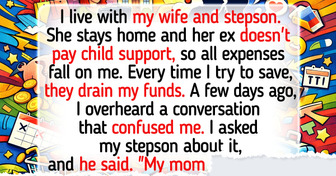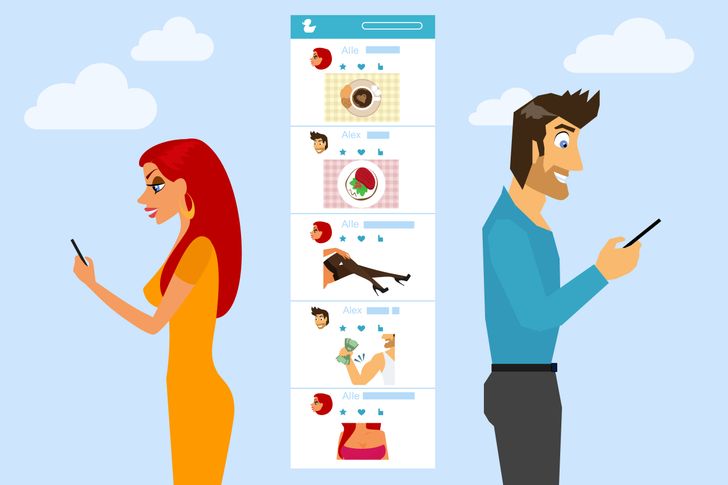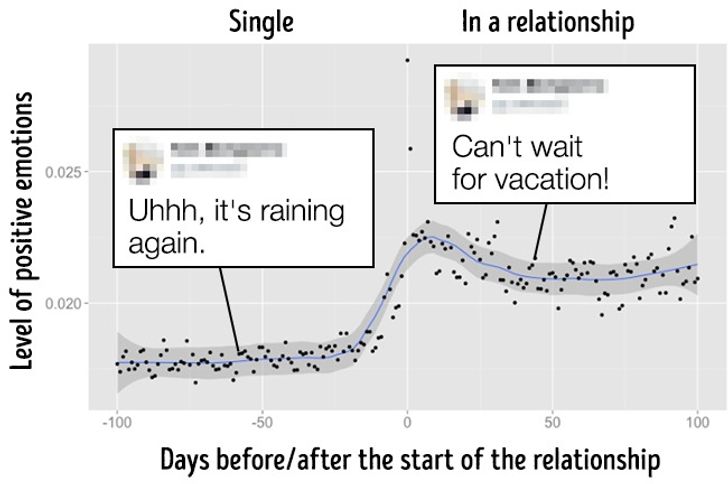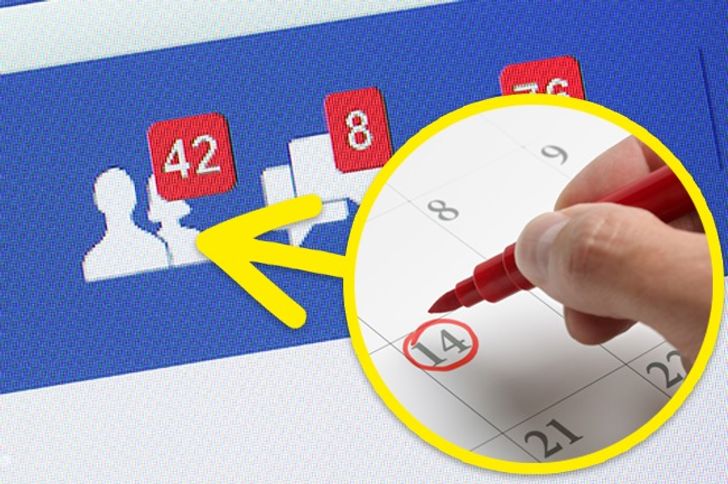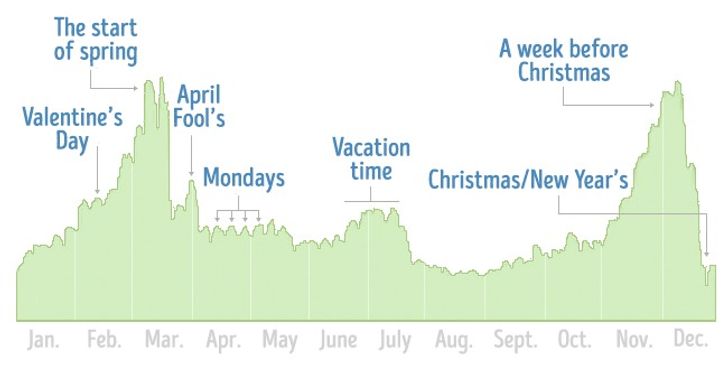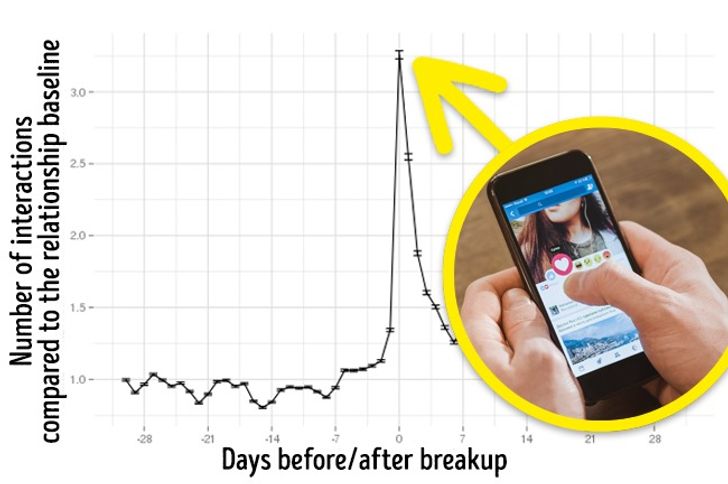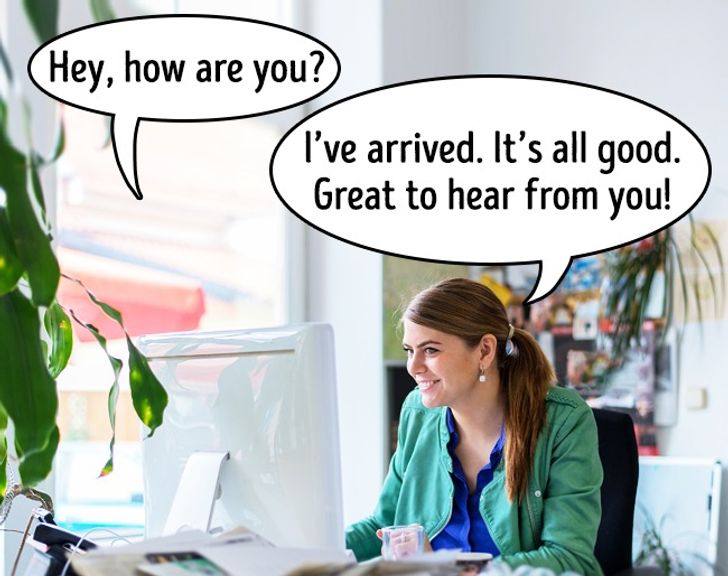What? Oh, Mr. Facebook, can you tell me when my next love will come? XD
8 Proofs That Facebook Knows When You’ll Fall in Love
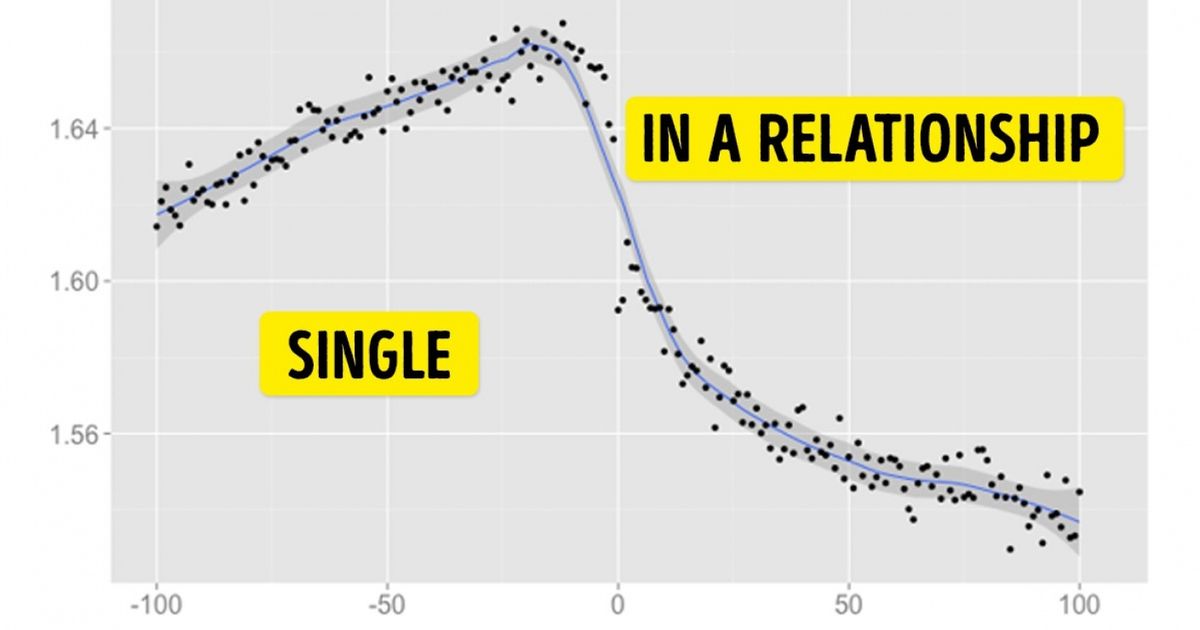
It turns out there is a group of data scientists studying love at Facebook. Thanks to their research, artificial intelligence is able to predict when you’ll start a romantic relationship better than a psychologist can.
Bright Side has collected some interesting conclusions and signs which make it possible to find out which relations connect two ordinary users of a social network.
Facebook studies love by analyzing other couples.
Not all users publicly note the status of their relationship. But this does not mean that Facebook doesn’t know what connects them. The team studies the behavior of those who have already indicated the status of their relationship and finds similarities in other pairs of people.
If Facebook supposes that you and someone else are great friends or lovers:
- you will begin to see more news from this person in your Newsfeed;
- this user will appear higher in your chat bar;
- the site will invite you to arrange a meeting to organize a birthday party for this person;
- the site will sometimes remind you of what unites you and offer to share joint memories on your Timeline.
Facebook reads what people in love write.
Approximately 100 days before changing their status to “In a relationship,“ users are more likely to use the words ”love,“ “sweet,” and ”happy" in messages and publish something on the walls of their crushes — an average of 2 posts per 12 days. When publishing something, they tend toward positive news.
Facebook knows the age of your future significant other.
The older the user, the lower the chances that their next partner will be the same age. For twentysomethings, the difference between partners is only 1-2 years. For people over 45, it is an average of 5-6 years. Exceptions happen: Scandinavians prefer to date their peers, while men in Egypt choose women 8-10 years younger.
Facebook knows the month when you will meet new acquaintances.
Every year in August, users add new friends, mostly living in other countries. This trend is easily explained: it is in August that most users go on vacation. And, of course, when out of their usual surroundings, people are more likely to make new friends.
Facebook knows when it is love.
Suppose you are over 23 years old and decided to change your status to "In a relationship." It turns out that if both users stay in this status for more than 3 months, the likelihood that they will stay together for 4 years or more is high. The longer the couple is together, the less likely the breakup. This makes common sense, but here it is supported with data.
Facebook knows when people argue more.
Most couples on Facebook break up between May and July and in February. There is a theory that this has to do with Valentine’s Day, an unfortunate New Year’s, and an upcoming summer vacation which one wants to spend without another argument.
Facebook predicts pre-breakup behavior.
About a week before the relationship is over, the user begins to communicate more actively with friends and family: exchanging messages and leaving comments under publications. On the day of the breakup, the number of interactions with other users increases by 225%: this is support from friends and relatives rolling in.
Facebook is sure that love prolongs life.
People who use Facebook to communicate with loved ones live longer than those who limit themselves only to live communication. It’s not just a matter of direct communication when there is no opportunity to meet in person but also in encouragement, support, care, and the opportunity to feel your worth in the life of other people that come from this.
Comments
Related Reads
12 Stories That Show the Bravest Thing You Can Do Is to Be Kind
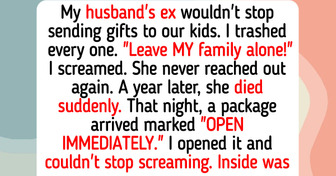
I Got Fired for Refusing to Let My Boss Humiliate Me in Front of Everyone
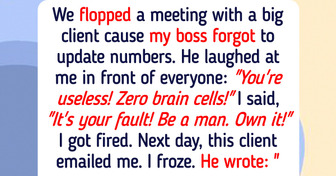
10 Moments That Prove Kindness Prevails Even in an Unfair World
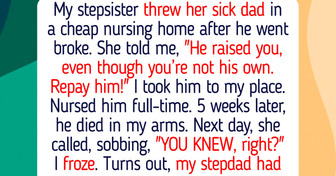
My Toxic Coworker Spread Lies About Me and Got Me Demoted—but I Got the Ultimate Victory
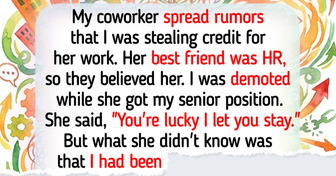
I Refused to Be Called the Office Villain by a Coworker Who Barely Works
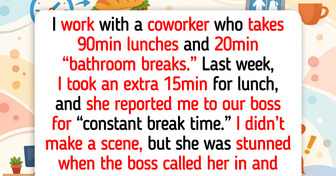
14 Friends Who Have a Black Belt in Creating Awkward Situations
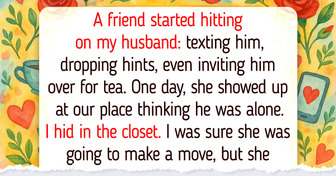
My Boyfriend’s Mom Kept Mocking My Career—My Response Silenced the Whole Table
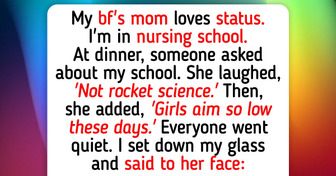
12 Moments Where Empathy Showed the Power of a Kind Heart
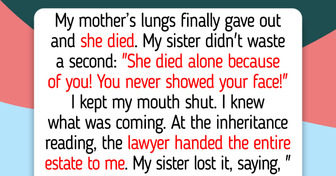
My Mom Refused to Be Called Grandma, and My 6-Year-Old’s Response Was Unforgettable
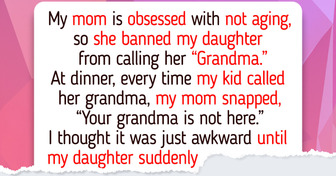
I Refuse to Let My Sister Hijack My Pregnancy Announcement
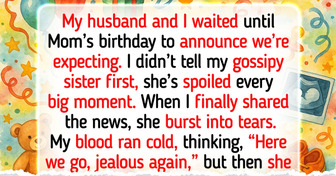
10 Moments That Show Kindness Doing the Heavy Lifting
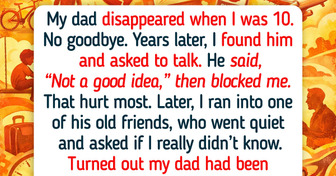
I Refuse to Sacrifice My Career to Fund My Stepson’s Expenses
